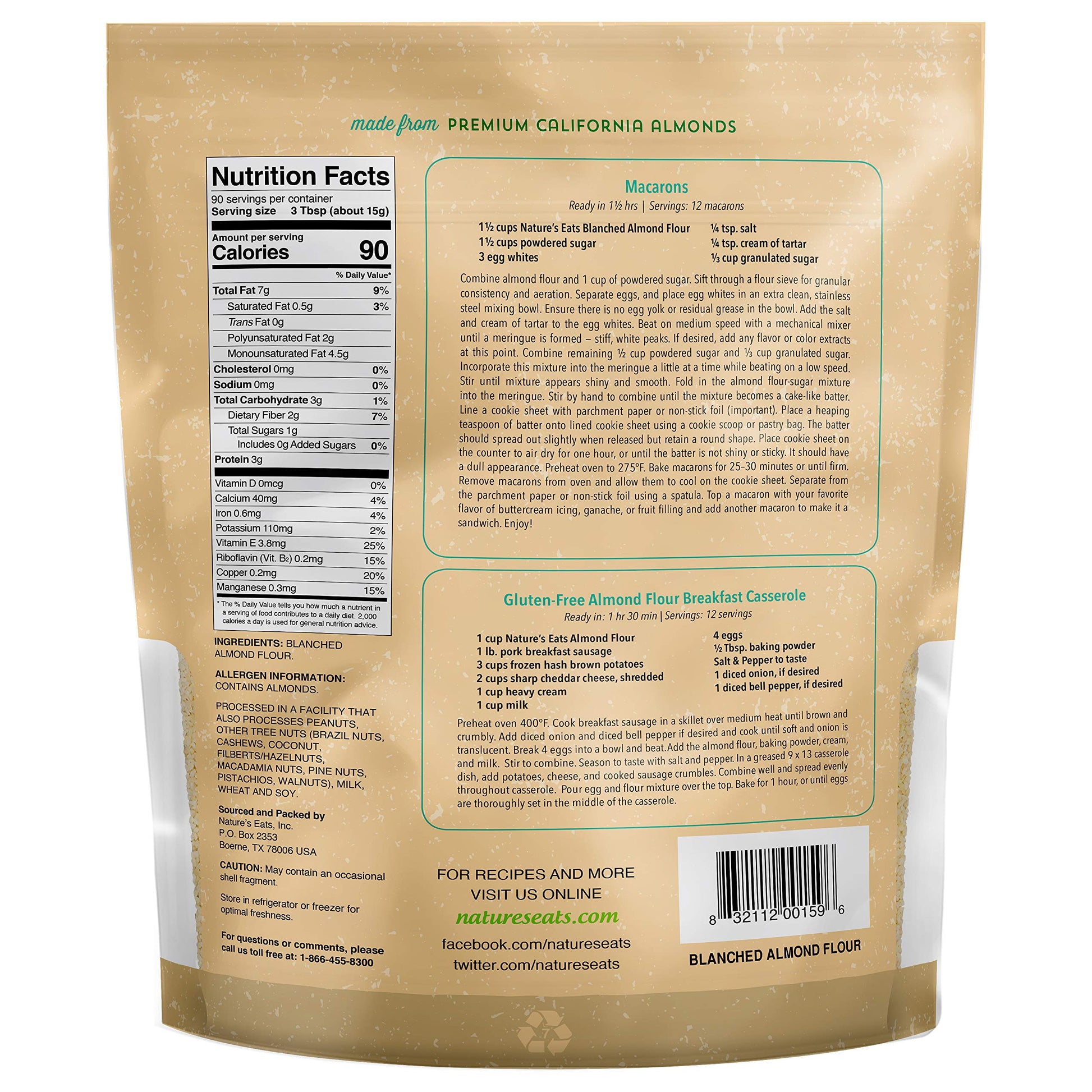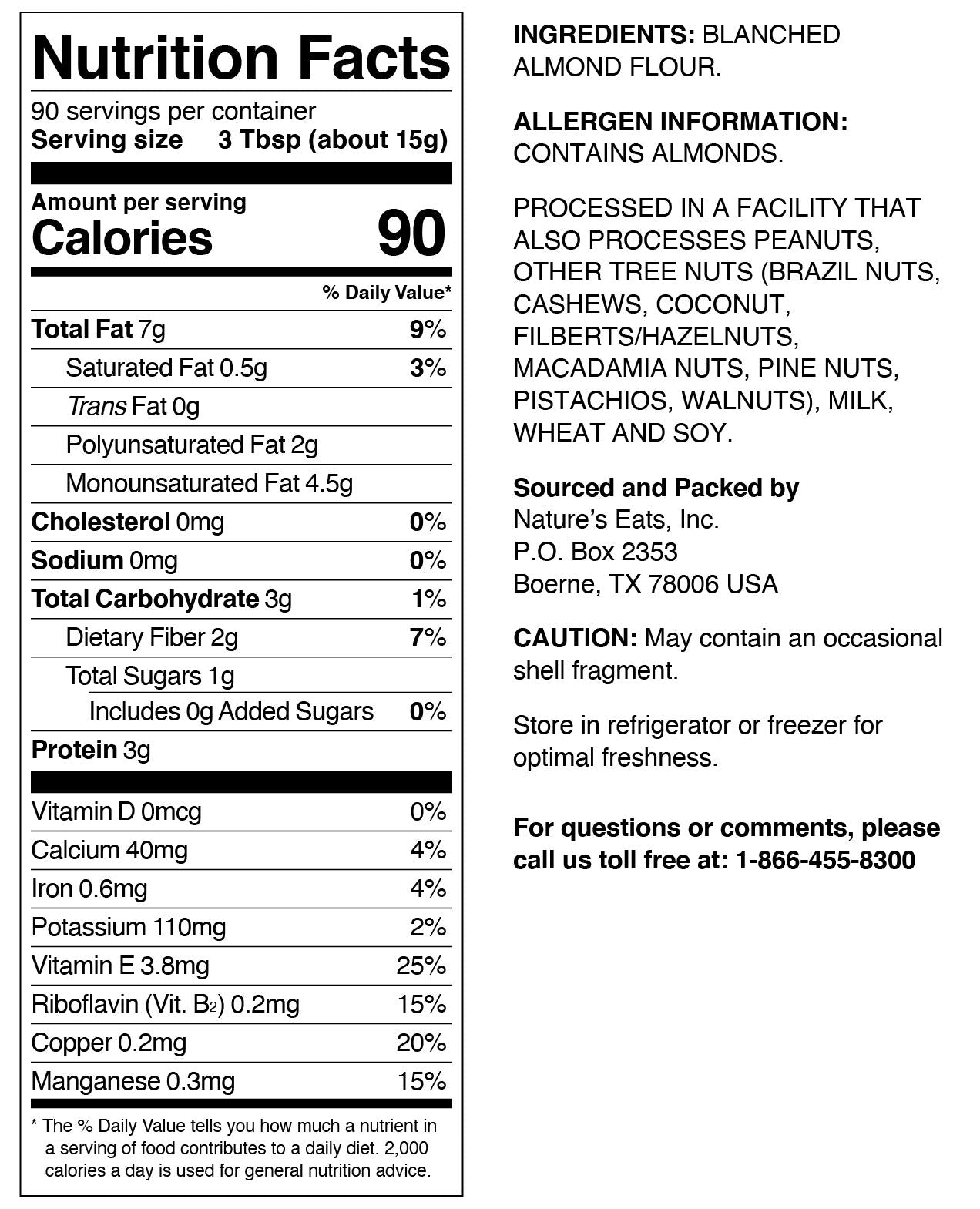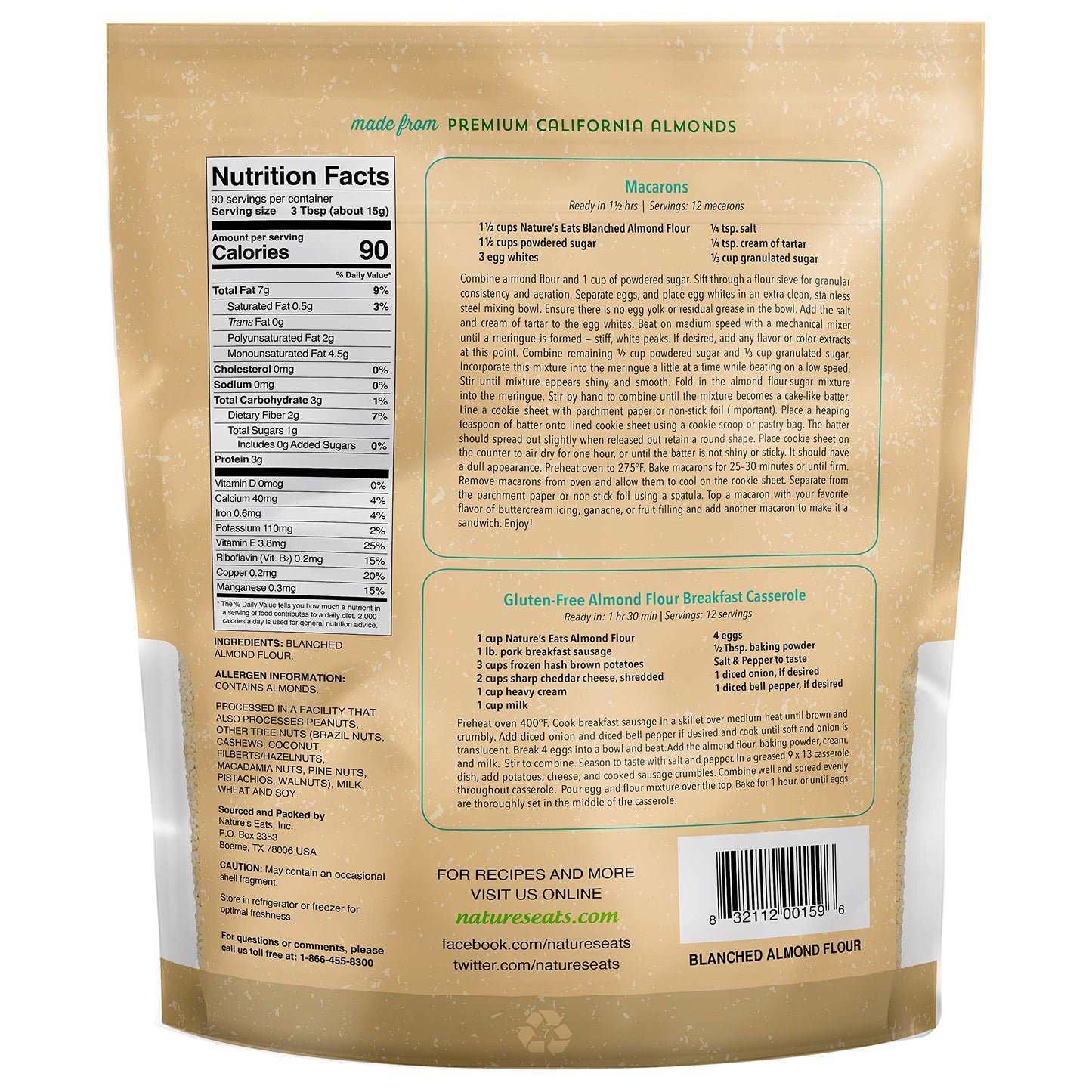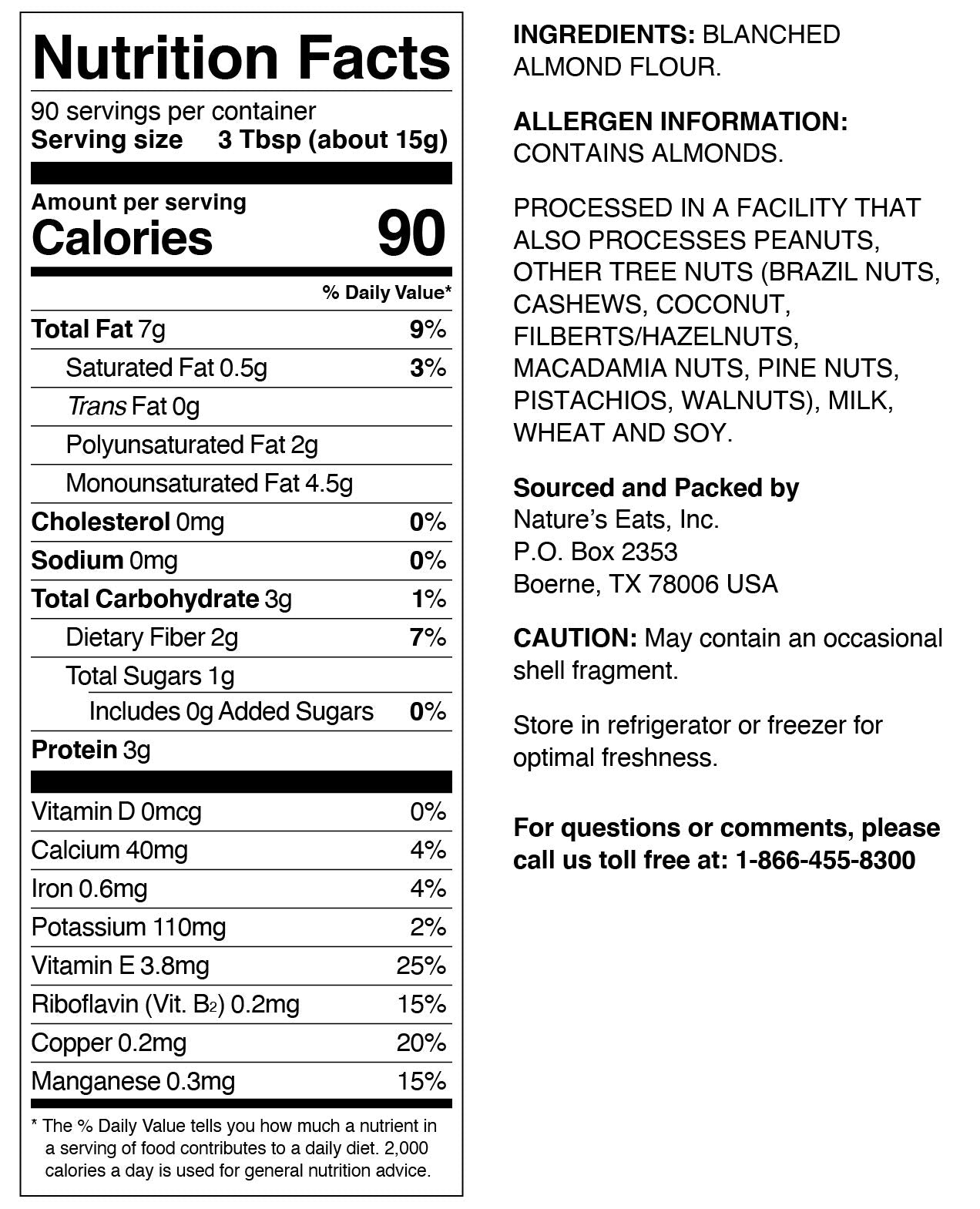You will not be allowed to compare more than 4 products at a time
View compareProduct Description
Nature'S Eats Almond Flour Or Almond Meal Is A Grain Free Flour That Is Wonderful For Baking. Friendly For Gluten, Wheat And Grain Free Diets, Almond Flour Is Also Lower In Carbs And Higher In Protein, Which Makes It A Healthier Flour Choice. Use It To Make Gluten Free Crackers, Breads, Cookies, And Donuts, Or As A Breading For Vegetables And Meats.
Frequently Asked Questions
- Q: What are the benefits of using almond flour for baking? A: Almond flour is a grain-free alternative that is perfect for gluten-free, wheat-free, and low-carb diets. It is lower in carbohydrates and higher in protein compared to traditional flours, making it a healthier choice for baking. It can be used in a variety of recipes, including crackers, breads, cookies, and donuts.
- Q: Can I use Nature's Eats Blanched Almond Flour for breading meats and vegetables? A: Yes, Nature's Eats Blanched Almond Flour is an excellent option for breading meats and vegetables. Its fine texture provides a great coating that is both crispy and flavorful, making it suitable for frying or baking.
- Q: Is Nature's Eats Almond Flour suitable for people with nut allergies? A: No, Nature's Eats Almond Flour is made from almonds and is not suitable for individuals with nut allergies. If you have a nut allergy, it's important to avoid almond flour and opt for other gluten-free flour alternatives.
- Q: How should I store almond flour to maintain its freshness? A: To keep Nature's Eats Blanched Almond Flour fresh, store it in an airtight container in a cool, dry place. For long-term storage, you can also refrigerate or freeze it to extend its shelf life.
- Q: What is the difference between almond flour and almond meal? A: Almond flour is made from blanched almonds that have been finely ground, resulting in a super fine texture that is ideal for baking. Almond meal, on the other hand, is made from whole almonds and has a coarser texture. Almond flour is typically preferred for recipes that require a smoother consistency.






